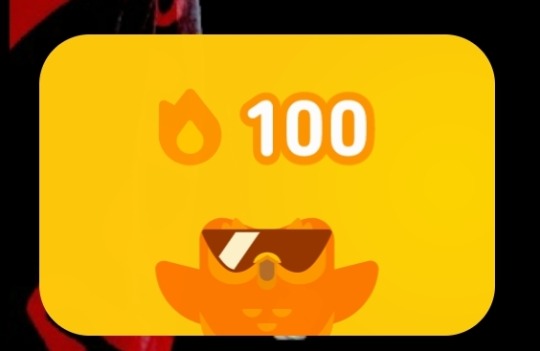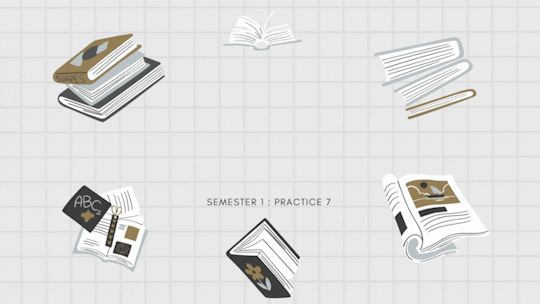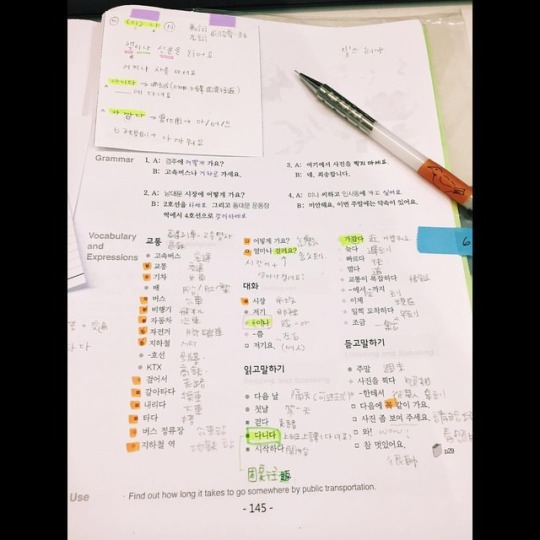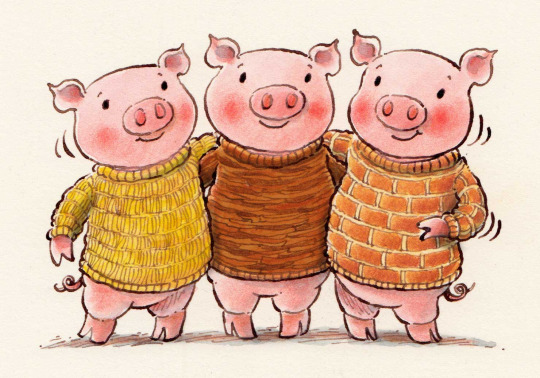#한국어 배우다
Text
안녕! Привет!
Я тут немножко хожу на корейский и сейчас это хождение понемногу превращается в приступы по нервничать, попсиховать или даже покричать.
왜? Почему?
Может сейчас это будет как жалоба, посмотрим. Она явно не будет первой.
Сегодня мы делали презентацию на тему 사람들이 (저는) 왜 한국어를 공부해요? (Почему люди(или я) учат корейский язык), это второй раз когда я её делала, презентацию, при этом я до сих пор ловлю ступор как её презентовать. Для меня ощущение, что лексика, что я уже знаю - кусковая, и этих кусочков не хватает до конца, чтобы сказать что-то кроме 재미있는(없는) или 좋아해요. (интересно/неинтересно, нравится)
+когда я пытаюсь что-то рассказать, что мне нравится, по итогу выходит что я сделала кучу ошибок(ошибки это хорошо), но правят их весьма громко, от чего хочется забиться в угол. И в тот момент я понимаю, что ошибки не страшны, а страшна реакция в ответ. И страшно, что желание говорить что-то пропадает. Как это было у меня в школе - сколько бы я не выдвигала гипотез по литературе или не давала правильных ответов, их или не слышали или говорили что это категорично не верно, неправильно. Ты после такого решаешь не говорить, перестаёшь пытаться. Я это осознаю, но защитить себя хочется сильнее.
И я все ещё задумываюсь, а оно мне надо? Если так тяжело(не в плане языка)
2 notes
·
View notes
Text


kind of a continuation of my other post abt duo but also happy 100 days of progress to me 🧡💛💚
#rambles#i started in January and it kinda turned into like a resolution#catch me trying to write a sentence for an instagram post tho lmaooo#this is the problem with duo i dont get like proper grammer lesseson so i want to conjugate a verb#and idk how to decide in the ending#i went with 한국어 배운 것을 좋아해요#but i was really stuck on 배우다 like do i do 배우를 배운 배우기 like what do i make it lmao#google was some but little help#g translate translates them all as the same
2 notes
·
View notes
Text

-(으)려고 하다! (I plan to)
With -(으)려고 하다 you can tell some one you plan to do something.
Whether or not you use -으려고 하다 or -려고하다 depends on the verb. If it's a consonant like 먹다 (to eat), then you would say:
"저는 먹으려고 해요” - I plan to eat
You drop the ‘다’ because that suffix makes it the dictionary form of the word. You would do this for every verb really. (Take that with a grain of salt I'm still learning too!)
But if it's a vowel like: 배우다 (to learn), then you would say:
"저는 한국어 배우려고 해요” - I plan to learn korean.
The exception is if your verb ends with ‘ㄹ’. So for example: 만들다 - To make
‘만들려고 해요’ - Plan to make
The reason being, and this is my assumption, that if you try adding -으려고 하다 to the end of verbs with ‘ㄹ’ it gets really hard to say. If I'm right someone let me know haha
That's all for nowww!
9 notes
·
View notes
Text
15-day challenge, learning Korean
Day 1: School and classroom
학교 - school
학생 - student
선생님 - teacher
책 - book
공책 - notebook
교실 - classroom
연필 - pencil
시험 - test, exam
숙제 - homework
공부하다 - to study
가르치다 - to teach
배우다 - to learn
Writing practice
요즘에는 한국어만 공부해요. 학교에 안 가고 혼자 인터넷으로 배우고 연습해요. 한국어 공부하는 재미있지만 어려워요. 어휘는 문법보다 더 어려워요. 혼자 공부하는 가끔 재미없어서 한국어 배우는 사람들 알고 싶어요. 그래서 우리는 같이 공부하고 연습할 수 있어요.
#15 day challenge#Korean langblr#i didn't write a lot because I couldn't think of anything else to say lol#since I don't go to school anymore#my posts
3 notes
·
View notes
Photo

Practice 07
Fill in the sentences with one of the following words:
가다 || 오다 || 만나다 || 먹다 || 이야기하다 || 듣다* || 쓰다* || -을/를 || -한테
오늘 영화관에 (가요)
식당에서 밥(...) (...)
커피숍에서 친구하고 같이 (...)
미나 씨는 친구(...) 편지(...) (...)
집에서 음악(...) (...)
Answer the questions:
수업이 끝나요. 그럼 뭐 해요?
... (식당 / 밥 / 먹다)
친구를 만나요. 그럼 뭐 해요?
... (영화관 / 영화 / 보다)
오늘 뭐 해요?
... (집 / 책 / 읽다)
학교에서 뭐 해요?
... (학교 / 한국어 / 배우다)
Read the following and practice your pronunciation:
나오미: 따오밍 씨, 보통 오후에 뭐 해요?
따오밍: 한국 친구를 만나요. 나오미 씨는 보통 오후에 뭐 해요?
나오미: 저는 집에서 책을 읽어요. 그리고 음악을 들어요.
Read the following and practice your pronunciation:
마리나: 따오밍 씨, 지금 뭐 해요?
따오밍: 휴게실에서 책을 읽어요. 마리나 씨는 뭐 해요? 한국어 공부해요?
마리나: 아니요, 이메일을 써요.
따오밍: 누구한테 이메일을 써요?
마리나: 어머니한테 이메일을 써요.
Practice the story above with the following info:
영화 + 보다 / 편지 + 쓰다 / 동생
한국어 숙제 + 하다 / 러시아어 + 가르치다 / 친구
Make your own stories using different verbs.
Read the following and answer the questions:
다니엘 씨는 미국 사람이에요. 지금 한국에서 일해요. 학교에서 한국 학생들한테 영어를 가르쳐요. 오후에는 한국어를 공부해요. 언어교육원에서 외국인 친구들하고 한국어 배워요. 저녁에는 친구들한테 이메일을 써요. 그리고 친구들하고 채팅을 해요. 주말에는 여자 친구를 만나요. 여자 친구하고 영화관에서 영화를 봐요. 그리고 커피숍에서 이여기를 해요.
다니엘 씨는 직업이 뭐예요?
다니엘 씨는 보통 오후에 뭐 해요?
다니엘 씨는 저녁에 뭐 해요?
다니엘 씨는 여자 친구를 만나요. 그럼 뭐 해요?
Write a story about your mornings and afternoons + weekends in the same format as above.
Grammar || Vocabulary || Practice
#Korean#Studyblr#Study#Koreanblr#Langblr#Learn#Language#Learning#Studying#Language Learning#StudyWithMe#SWM#SWMS1
4 notes
·
View notes
Text
Resources I'm using right now to study Korean by myself (Sept. 2021)
Vocabulary
Korean Vocabulary by Evita (link)
(this link goes to her Anki page that you can download and import on your own anki to use it)
What I personally did was import it into my anki, export it as a txt. file and then pasted it on an excel file.
So in that way I have the list of all the vocabulary for a better self-control and I copy them in my memrise deck.
On excel I highlight in yellow the words I already know and in green the ones I don't know and I need to add to my vocabulary deck.
This deck has over 5000 words so you will use it for a good while hahah.
Grammar
Talk to me in Korean (TTMIK) Lessons
I was using the Korean in Grammar In Use books (I finished the first one and I started the first chapter of the second one) and I highly recommend them but right now I'm really busy with college so I had to squish my time to study Korean. That's why I decided to use the lessons TTMIK offers since they are short and I can do them faster.
Extra
Daily Routine in Korean by TTMIK
I finished this book a few days ago and it was really helpful now that I'm more advanced in my learning (I tried to use it when I just started and it was impossible for my brain to remember the phrases and make them make sense).
Resources made by me
Vocab deck (link)
This deck is made by me with all the resources I have used so far for vocabulary til now. The levels are divided in 1000 words each cause I think that helped better with my organization. If you decide to use it, I hope it can be helpful for you ^^
Hanja deck (link)
I made this one using the guide of Hanja made by How To Study Korean (link). It's a great guide, and I recommend it if you are interested on learning some hanja.
My deck has 260 hanjas that I found the most useful and interesting. Right now I'm not studying hanja anymore cause I think the ones I learned are enough according to the level where I am now, and I wanna use that time to learn more things in Korean properly. That's why, if you wanna learn them all I recommend you the guide made by How To Study Korean.
I hope this can be truly helpful for anyone who needs it.
I will try my harderst to post more often, specially lessons and vocabulary lists.
Thank you to everyone who follows the blog, I hope it can be useful to yall. And also thank you for everyone who follows me on Instagram (@/itslostfocus) where I post daily pics -not so daily, sorry I've busy- of my progress learning Korean.
Happy learning everyone! ^^

#korean grammar#korean class#learning korean#korean words#korean language#learn korean#korean#korean lesson#languageblr#language learning#kor#korean phrases#kr#한국어공부#한국어 배우다#한국어 배우기#한국어 연습#한국어 공부하다#한국어 단어#한국어 공부하기#한국어 문법#한국어 어휘#한국어
267 notes
·
View notes
Text
~는지 grammar point
Important: these are my notes and observations from studying. Feel free to reblog and correct me or add to the post.
Today I reviewed this grammar point that is used to show uncertainty. It is commonly used with questions words but from my observation, there are mainly 3 times when you use -는지.
1. When a verb is used with a question word.
Ex: 엄마가 누구랑 먹는지 모르겠어요.
I don’t know who mom is eating with.
Question word: 누구 (who)
2. When a verb is used with ‘if’. So basically if you want to say ‘if’, to express uncertainty, use ~는지.
Ex: 엄마가 지금 먹었는지 모르겠어요.
I don’t know if mom ate.
3. When you use a question word.
Ex: 그 사람은 왜 데려오는지 물어봤어요.
I asked him why he is bringing that person.
Question: 왜 (why)
In conclusion, if you want to say ‘if’ or use a question word in a clause, -는지 is used instead of just -는.
21 notes
·
View notes
Text
Not to be outside of The Boyz promo, but i made a KKT groupchat for people learning Korean!
Find it here or use the QR code:

0 notes
Photo

한국어를 배워요. 6과 시험있어요 ㅠㅠ ――✤❉✤――― 又到了周二燒腦日 已經來到第六課 越發力不從心ㅠㅠ 記憶力好有限 能複習的時間也好有限 但是,既然已經走在這條路上, 硬著頭皮也要走完她。 fighting! #微前進也是一種進步 #韓文 #practice #學韓文 #語言 #練習 #배우다 #한국어 #learning #study #korean #시험 #힘드러 #공부 #힘 #회이팅
1 note
·
View note
Text
Common 한국어 Verbs List
안녕하세요 여러분들! Welcome back to another 한국어 post. Today, I listed *quite* a few verbs (44 to be exact) that are super common, and that I use a lot. Let's get in with the list! 가자!
가다 To go
가르치다 To teach
가지다 To have
갖다 To have
거짓말하다 To lie
걱정하다 To worry
걷다 To walk
고백하다 To confess
공부하다 To study
기다리다 To wait
기억하다 To remember
꿈꾸다 To dream
끝나다 To finish
나가다 To exit
내다 To pay
닫다 To close
대답하다 To answer
도와주다 To help
도착하다 To arrive
듣다 To hear
들어오다 To enter
마시다 To drink
만나다 To meet
만들다 To make
말하다 To talk/speak
먹다 To eat
모르다 To not know
묻다 To ask
물어보다 To ask
배우다 To learn
벗다 To undress, take off clothes
보내다 To send
보다 To see
빌리다 To borrow, lend
사다 To buy
사랑에 빠지다 To fall in love
사랑하다 To love
사용하다 To use
살다 To live
생각하다 To think
서두르다 To hurry, rush
소개하다 To introduce
쉬다 To rest
시작하다 To start
Okay! So here are some super useful, super common verbs. I hope you all are doing well and that this list can help you! 안녕!
#safslangblr#safsstudy#koreanstudynetwork#korean vocab#korean learning#korean language#korean#korean lang blog#korean langblr#korean study blog#korean studyblr#한국어배우기#한국어공부#한국#한국말#한국어#한국어를#verb list#korean verbs#korean vocabulary
148 notes
·
View notes
Photo

Introducing yourself in Korean can be a little tricky, so here I am going to teach you the EASIEST ways to introduce yourself in Korean.
1. 안녕하십니까, 제/내 이름은 …..(y/n) 입니다
(annyeonghasimnikka, je/nae irumun [y/n] imnida)
Hello, my name is ….. (y/n)
안녕하십니까: Hello (very formal)
제 : My
내 : My (less formal)
이름은 : Name (subject)
입니다 : Is
2.안녕하세요, 저는/나는 ….. 입니다
(Annyeonghaseyo, jo nun/ na nun [y/n] imnida)
Hello, I am ….. (y/n)
안녕하세요: Hello
저는 (전) : I am
나는 (난) : I am (less formal)
입니다 : Is
Example
1. 안녕하십니까, 제 이름은 “마이크” 입니다.
(Annyeonghasimnikka, je irumun “Mike” imnida)
Hello, my name is “Mike”
Explanation:
♣This expression is the most formal way to introduce yourself in Korean.
♣안녕하십니까(Annyeonghasimnikka) means hello just like 안녕하세요(annyeonghaseyo).
♣However 안녕하십니까(annyeonghasimnikka) is slightly more formal than 안녕하세요(annyeonghaseyo)
2. 안녕하세요, 저는/나는 “박진영” 입니다.
(Annyeonghaseyo, jonun/nanun “Park Jinyoung” imnida)
Hello, I am “Park Jinyoung”
Explanation:
♣This one is still a formal expression, but compared to the first expression, this one is less formal.
♣In Korea, these days the young generation sometimes shorten the word 저는(jonun) and 나는(nanun) into 전(jon) and 난(nan).
ps: (y/n) = your name
#korean#south korea#studyblr#korean language#korean langblr#study everyday#study korean#한국어#한국#한국어 배우기#공부하다#배우다#파이팅#열심히
1 note
·
View note
Text
매일 한국어 연습본문 #1
2019년 08월 26일
대학에서 저는 영어(문화, 언어들, 문학)와 한국어를 배우고 있을 거예요.
─────── VOCABULARY ───────
대학 - university
-에서 - location particle (at/in/etc.)
저 - i, me
영어 - English
문화 - culture
언어들 - languages
문학 - literature
-와 - and
한국어 - Korean
배우다 - to study
#korean#langblr#korean practice#korean vocab#korean vocabulary#writing practice#korean writing practice#한국어#한국어 연습#한국어배우기#new studyblr#studyblr#notes#clytieslight
10 notes
·
View notes
Photo

Easy to Learn Korean 1487 – Memorize (part one).
#alphabet#Hangeul#hanja#It’s hard for me to recall memorized (vocabulary) words.#King Sejong the Great#Luminosity#memorize#Quick learner#This weekend I have to memorize Korean (vocabulary) words.#to learn#When you grow old it gets more difficult to memorize things.#나이를 먹을수록 외우는 것이 더 어려워져요.#배우다#빨리 배우는 사람#암기하다#외우다#이번 주말 저는 한국어 단어를 암기 해야해요.#저는 외운 단어를 떠올리는게 힘들어요.#한글#Chad Meyer#Moon-Jung Kim#EasytoLearnKorean.com#An Illustrated Guide to Korean#Korea Times#EasyKorean#Korean
11 notes
·
View notes
Text
Korean Reading Practice 01 (한국어 독서 연습 01)
안녕하세요 여로분! 루마니아에서 온 ‘컵케익’ 입니다~ 한국어를 너무 배우다 싶어요 그래서 열심히 일할거예요! 저는 많은 한국어를 몰라요 그레서 제 실수에 대해 사과드립니다!
Today’s reading: 아기 돼지 삼형제 – Kid’s story

옛날 옛날에 엄마 돼지와 아기 돼지 삼형제가 있었어요. 어느 날, 엄마 돼지가 아기 돼지들에게 말했어요. “이제 너희도 다 컸으니까 나가서 너희 집을 짓고 살아.”
옛날 옛날에 = once upon a time
엄마 = mother, mum
돼지 = pig
아기 = baby, child
어느 = one (e.g: one night, this thing happened)
날 = day
말하다 = to tell
이제 = now
짓다 = to build
집 = house
Once upon a time, there was a mother pig and her three pig children. One day, mother pig told her three children. "Now, because you are all grown up, go out and build your own house."
첫째 돼지는 지푸라기로 집을 지었어요. 지붕도 벽도 문도 모두 지푸라기로 지었어요. 집을 다 지은 다음에 첫째 돼지가 말했어요. “집 짓는 것은 정말 쉬워!”
첫째 = (the) first
지푸라기 = straw
지붕 = roof
벽 = wall
문 = door
모두 = all
다음에 = after
정말 = very
쉬운 = easy
The first pig built his house out of straw. The roof, the wall, the door, they were all built out of straw. After the house was built, the first pig said. "It's really easy to build a house!"
둘째 돼지는 나무로 집을 지었어요. 지붕도 벽도 문도 모두 나무로 지었어요. 집을 다 지은 다음에 둘째 돼지가 말했어요. “집 짓는 것은 정말 쉬워!”
둘째 = (the) second
나무 = wood
The second pig built his house out of wood. The roof, the wall, the door, they were all built of wood. After the house was built, the second pig said. "It's really easy to build a house!"
셋째 돼지는 벽돌로 집을 지었어요. 집을 짓는 데에 시간이 많이 걸렸어요. 하지만 셋째 돼지는 포기하지 않고 튼튼한 집을 지었어요. 지붕도 벽도 문도 굴뚝도 벽돌로 만들었어요. 집을 다 지은 다음에 셋째 돼지는 맛있는 수프를 만들기 시작했어요.
셋째 = (the) third
벽돌 = brick
시간 = time
하지만 = but
포기하다 = to give up
튼튼하다 = to be sturdy
튼튼한 = durable, tough
굴뚝 = chimney
만들어지다 = to be made of
맛있는 = delicious (adj.)
수프 = soup
The third pig built a house out of brick. Building the house took a lot of time. But the third pig did not give up and he built a durable house. The roof, the wall, the door, the chimney, they were all made out of brick. After the house was built, the third pig started making delicious soup.
그때, 한 늑대가 아기 돼지 집 근처로 왔어요. 늑대는 먼저 첫째 돼지 집으로 갔어요. 그리고 집 앞에서 “후”하고 불었어요. 그러자 지푸라기 집이 날아갔어요. 첫째 돼지는 둘째 돼지 집으로 달려 갔어요.
그때 = then
늑대 = wolf
오다 = to come
근처 = near
먼저 = (in the) first (instance)
가다 = to go
그리고 = and
앞(에[서]) = in front
불다 = to blow
후 = interjection (hoo! - sound of someone puffing or blowing)
하고 = with
날아가다 = to be blown away
달리다 / 달려 가다 = to run
Then, one wolf came near to the pig houses. The wolf went first to the first pig's house. Then, when he was in front of the house, he blew on it with a "hoo". Then the straw house got blown away. The first pig ran in the direction of the second pig's house.
그 다음에 늑대는 둘째 돼지 집으로 갔어요. 그리고 집 앞에서 “후”하고 불었어요. 그러자 나무 집에 날아갔어요. 첫째 돼지와 둘째 돼지는 셋째 돼지 집으로 달려 갔어요.
다음에 = next (as in what happened next)
After that, the wolf went to the second pig's house. And when he arrived in front of the house, he blew it away with a "hoo". Then the wood house got blown away. The first and the second pig ran to the third pig's house.
드디어 늑대는 셋째 돼지 집에 도착했어요. 그리고 집 앞에서 늑대는 “후”하고 불었어요. 그런데 집이 날아가지 않았어요. 그래서 늑대는 다시 한번 “후”하고 불었어요. 그리고 또 “후”, “후”, “후”….
드디어 = finally
도착하다 = to arrive
그런데 = but, however
그래서 = so
한번 = once
Finally, the wolf arrived at the third pig's house. And, when he was in front of the house, he blew on it with a "hoo". However, the house did not get blown away. So the wolf tried to blow once again with a "hoo". And again "hoo", "hoo", "hoo"...
늑대는 너무 화가 나서 지붕 위로 올라갔어요. 늑대는 굴뚝을 통해 집 안으로 들어가려고 했어요. 돼지 삼형제는 뜨거운 수프를 벽난로로 옮겼어요. 늑대가 굴뚝으로 내려왔을 때 거기에는 뜨거운 수프가 있었어요. “앗, 뜨거워!”.
화나게되는 = to be angry
-을/를 통해 = through
뜨거운 = hot
벽난로 = fireplace
내려오다 = to go down (something)
The wolf was very angry so he climbed up on the roof. The wolf was going through the chimney into the house. The three pig brothers moved the hot soup by the fireplace. As the wolf went down the chimney, he sank into the hot soup that was there. "Ah, hot!"
늑대는 꼬리가 너무 뜨거워 꼬리를 잡고 도망갔어요. 돼지 삼형제는 집 안에서 그 모습을 보고 크게 웃었어요.
꼬리 = tail
도망가다 = to run away
크게 웃다 = to laugh hard
The wolf's tail was very hot and the wolf took his tail and ran away. The tree pig brothers who were in the house laughed really hard when they saw him.
끝. The End.
Hi, guys! I made this post with the intent of helping other language learners with Korean vocabulary through a very effective way, which is, of course, kids’ stories! You can’t even imagine how easily you retain certain words, it just sort of happens as kids’ stories tend to be very repetitive, and while this thing could get quite annoying in our native languages, it proves effective in the process of learning foreign ones!
I also want you to kindly excuse any mistakes, I’m truly a beginner with basic knowledge that still has a long way to go! But do not forget to correct me on my mistakes, I encourage you to do so, because that way I can learn from my errors and gain better knowledge!
I made this reading and translating exercise on the June 3, and since then I have added a few words to the vocabulary list since I realised that some people might not know all the words that I didn’t put down (words that I was aware of), so I added them now for a better acces to learning! I hope this post proves useful!
– Cupcake ( 컵케익 ) ♡
#my post#langblr#language#languages#korean#korean reading practice#reading in korean#korean lesson#lesson in korean#korean lessons#korean reading training
12 notes
·
View notes
Text
Today is 6 months learning Korean
Officially learning only five months but six months because I count learning to read Hangul as the beginning. Here is some stuff I know.
안녕하세요. 오늘 7월 18일. 아침에 2시 입니다. 제 이름은 키란 입니다. 나는 31살 . 오스틴 에서 왔어요. 잘 지냈어요? 나는 학생 그리고 쓰다 공부해요. 제 생일 2월 21. 나는 고양이 있습니다. 그는 이름은 티빌리우스 입니다. 노래 그리고 춤 좋아합니다. 오늘은 나는 한국어 6개월 배우다. 나는 더 말하다 연습해요. 감사합니다. 안녕가세요.
My favourite word is 하늘(hanul). Sky. :)
Translation: hello. Today is July 18. It is 2 in the morning. My name is Kieran. I am 31 years old. I live in Austin. How are you? I am a student and study writing. My birthday is February 21. I have a cat. His name is Tiberius. I like to sing and dance. Today I have learned Korean for 6 months. I need to practice speaking more. Thank you. Goodbye.
#kieran learns korean#languages#korean#hangul#Not as difficult as you would think#but still challenging
3 notes
·
View notes
Text
Korean Verbs
안녕하세요, 오늘 기분이 어때요?
I decided to share some (basic) Korean Verbs to motivate you to study! I apologise if any Verbs repeat ;; I don’t have time to double check.
(Add me on kkt! I’d like to have study buddies, even if my korean is pretty basic! ID: dairymilk. You can also add me on hellotalk! ID: kairy1)

Each time I try to make the 한국어 bold, my app crashes. 죄송합니다.
일하다- to work
기억하다- to remember
청소하다- to clean
요리하다- to cook
노래하다- to sing
노력하다- to put in effort; to try hard
동의하다- to agree
인정하다- to admit
후회하다- to regret
운동하다- to exercise
사랑하다- to love
말하다- to speak
생각하다- to think
오다- to come
끝내다- to finish
춤추다- to dance
알다- to know
걷다- to walk
배우다- to learn
연습하다- to practice
살다- to live
좋아하다- to like
기대하다- to expect
건너다- to cross (a road, etc)
던지다- to throw
싫어하다- to not like
떠나다- to leave somewhere
농담하다- to joke
공부하다- to study
앉다- to sit
만지다- to touch
자다- to sleep
보다- to see
기다리다- to wait
약속하다- to promise
듣다- to hear
들어보다- to listen
그만하다- to stop
놀라다- to be surprised
#korean study motivation#korean study blog#korean studyblr#koreanblr#korean#한국어공부#한국어#study#studying#studyblr#공부#korean langblr#korean language#langblr#langblog
369 notes
·
View notes